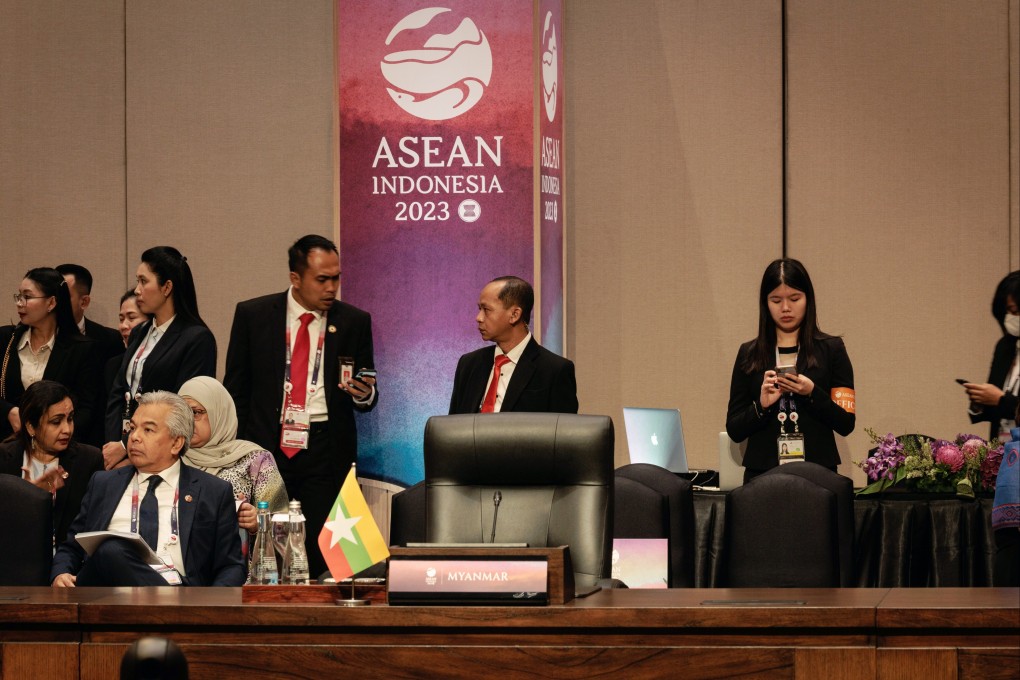Asian Angle | Asean has united to send Myanmar’s junta a message. Can it work with stakeholders to end the crisis?
- The decisions reached on Myanmar at the recent Asean summit indicate greater cohesion among member states and not yielding to the junta’s demands
- Asean must now remain resolute in resisting the junta’s threats and engage multiple stakeholders to work towards a political solution

Asean has been much criticised over its failure to effectively respond to the crisis in Myanmar that was triggered by the military junta seizing power in the February 2021 coup. Thus, the deliberations of its leaders in Jakarta last week, and the subsequent release and implications of its “review and decision” statement, are under scrutiny.
Many, especially the long-suffering people of Myanmar and humanitarian organisations on the ground, would not see this as a sign of tangible resolution, and they would be right. Yet the decisions reached indicate greater cohesion among different member states on how to move forward and, more importantly, in not yielding to the demands of the junta. The following from the nine decisions bear particular importance.
First, the group was more direct in its condemnation of the post-coup violence which has driven the country down a path of civil conflict and humanitarian tragedy, and the failure of all parties to de-escalate the violence. The Tatmadaw’s indiscriminate use of force was particularly singled out for criticism, which only selected Asean member states had previously done.
Second, Asean agreed to the formation of an informal troika made up of the incumbent, immediate past and incoming chairs to coordinate a more comprehensive management of Myanmar. This means that Asean’s next chair Laos, one of its smallest and least developed states, can count on the support of Indonesia and Malaysia on Myanmar-related matters, lessening the strain on other chair-related duties. This approach also draws lessons from Asean’s efforts to engage different stakeholders in Cambodia before its eventual admission to the regional grouping in the late 1990s.
Third and most importantly, Asean’s leaders upheld their decision to disallow the junta’s participation at the Asean Summit and Foreign Ministers meeting and did not entertain the junta’s preference to “voluntarily defer” its role as Asean chair in 2026.
The leaders decided instead that the Philippines will take on the role after Malaysia, and the rotation continue alphabetically until a different decision is made. This effectively blocks Myanmar from assuming its chairmanship for at least another decade and the international recognition that comes with it. The opportunity for non-political participation remains should Myanmar wish to take it.

It is also notable, given the division among Asean member states over how to proceed on the situation in Myanmar and its current rulers, that the decisions above were endorsed by all Asean leaders, including by those countries that were either friendly or indifferent to the junta. Such is the loss of goodwill among Asean member states that the belligerence of the generals in Naypyidaw has achieved.
